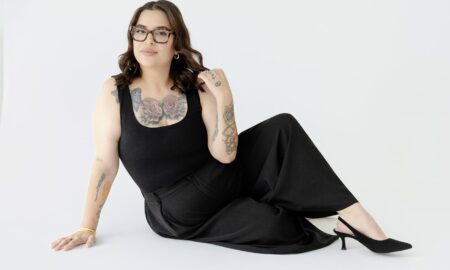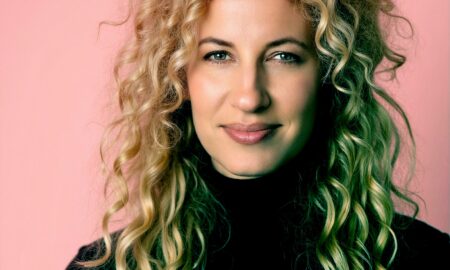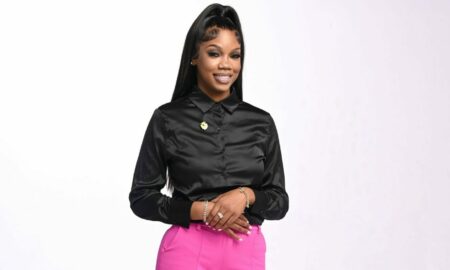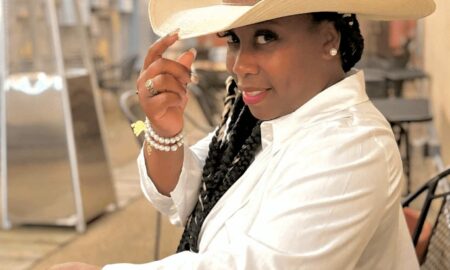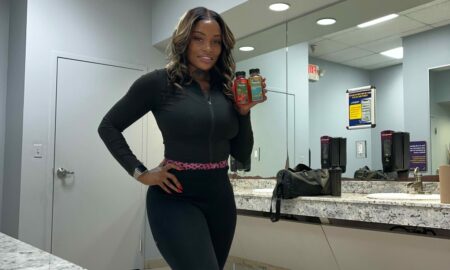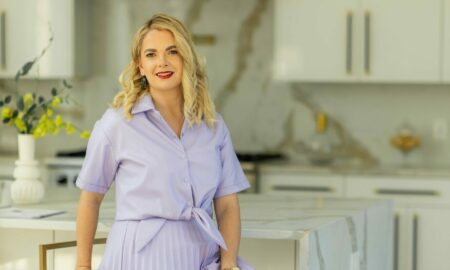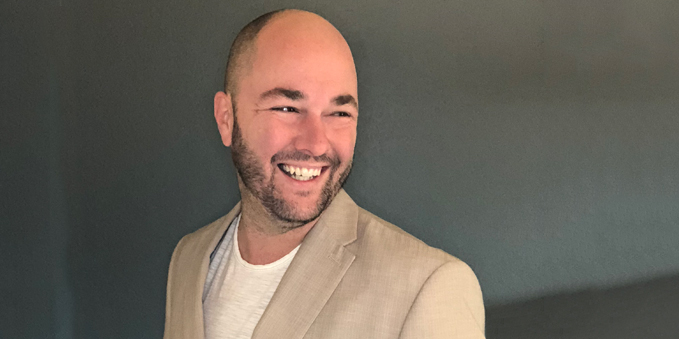

Today we’d like to introduce you to Jason Bee.
So, before we jump into specific questions about the business, why don’t you give us some details about you and your story.
At the tail-end of the 90s, I was diagnosed with bipolar disorder. I remember leaving the doctor’s office feeling betrayed by, of all things, my own brain. I remember questioning how to move forward with a mind full of thoughts and decisions I could no longer trust, while at the same time recognizing that these thoughts of confusion were also coming from the same brain I was having a hard time coming to terms with.
It was a very hard road to find stability for me—full of denial, pain, heartbreak to myself and to those who loved and cared for me. There’s something to be said about hitting “rock bottom”: you either give up, or you figure your crap out. I decided I wanted to figure my crap out.
At some point, I realized that “hard road” I had taken wasn’t a necessity to find a sense of balance. I wanted to find a way to reach others in their own journeys, who were struggling as I had, and tell them a) you’re not alone, b) its okay to talk about it, and c) its okay to ask for help. I wanted to do this through something engaging, entertaining, and relatable, while being informative without being overly clinical. I realized I wanted to make a movie about my experiences…and so, I started what would become a 7-year journey to make DONOVAN. It is the story of a recently divorced advertising director who tries to be a good father to his young son while being torn apart by his own bipolar disorder.
As my journey within making this film grew, so did its message. The more I shared my story, the more I realized how many others were willing, and wanting quite frankly, to share theirs. It became a catalyst of what I call the “Me Too Effect.” So many others shared their stories of struggle with bipolar, depression, anxiety, addiction, PTSD…stories about themselves, their brothers, their spouses, their parents, someone knew someone affected by… And no matter what the story was, everyone was coming together in the name of helping one another—in the name of love. I realized what had started out as my own story, with my own limited perspective in the grand scheme of things, became a story with a much bigger purpose—it became a story about others.
At the end of the day we all have something—whether that’s a mental illness, a learning disability, addiction, physical challenges, coming to terms with our sexuality, or just being a scorpio—that we all must fully embrace to give 100% of ourselves to our loved ones. Because every morning we’re allowed to wake up and spend another day on this planet, they’re the ones who really matter most.
I hope people see this film and are inspired by its story. More than that, I hope people connect with the messages within and find their own super-power to share with their loved ones.
We’re always bombarded by how great it is to pursue your passion, etc – but we’ve spoken with enough people to know that it’s not always easy. Overall, would you say things have been easy for you?
Having never made a movie before, I was learning as we went. So to say it was a rough road is probably an understatement. I mean, I had acting experience, but I had never written, produced, directed, etc. before. Fortunately, I had a crew of experienced people that knew of and believed in my story. They were incredibly generous in their knowledge and patient with me when I didn’t have an answer. We were a small crew, but an incredibly tight-knit unit. The project took much longer than anyone ever anticipated it would. We spent over a year in principal photography, shooting when we could. Through that, at any point, any of my crew or cast members could have easily said, “This is taking too long, I’m out.” But they didn’t. They stuck with me and the project, and saw it through to the end. I can’t describe the feelings I get when I think about that fact.
Plus, and obviously, finding money to shoot a film is incredibly difficult. It’s an entire book on its own. I was fortunate to meet and work with both of my executive producers here in Dallas. Raymund King and David Visser never batted an eye when I said I needed something. Raymund, who is also an actor, played the lead psychiatrist role of Dr. Cray. David, who would joke around about showing up to set to “stand around and watch,” would roll up his sleeves, help clean up, get lunch, whatever it took, he was in the game with us. I respect them both so highly for not only “buying into the film” quite literally, but by working their butts off with the rest of us every day.
The biggest struggle has always been getting people to understand and buy into this story becoming a different kind of movie. Once I realized the best way to convey my vision was just to be open, vulnerable, and authentic (with a massive dose of persistence), things started working in the right direction. It was an incredibly long process, but one that was absolutely worth everything we’ve all been through together.
So, as you know, we’re impressed with Brilliant Mania Films – tell our readers more, for example what you’re most proud of as a company and what sets you apart from others.
Brilliant Mania Films is a production company set up to create and distribute the film, DONOVAN. We have digital downloads and DVDs available through the website, donovanthemovie.com, and I’m super proud of the end-result that became this film. I’m also proud of the accolades it is receiving. It took best picture at the Bare Bones Film Festival recently as well as best dramatic feature and the “Only Human Award” at the Ft Worth Indie Film Showcase a couple of weeks ago. More than all of that though, I am constantly inspired, elated, and proud of the effect it has on audience members.
We premiered the film at the Angelika Dallas (off Mockingbird) to an audience of about 300 people. Granted, some of that was cast/crew/friends and family, but there was a great number of people that heard about the event through someone that heard about it through someone else. At the end of the screening, we held a “short” Q&A session, typical of a premiere screening. By my own guesstimate, I’d say if you retain 30-40% of that audience for a Q&A, you’re doing pretty good. NINETY percent of this audience stuck around…in fact, some people that left during the credits heard we were doing a Q&A and came back in to participate!
I don’t remember what the first question was. I know it was something around “how long did it take to make,” or something of that nature, but I don’t remember because the second question completely overshadowed it and made me face my fear: Why did you choose this topic?
I’m pretty open about my own condition in one-on-one settings, but this would be the first time in a crowd for me to admit this publicly. I took a deep breath, said a little inner-prayer, and opened my mouth, “I didn’t choose this topic. It chose me,” and I shared a little bit about where this story came from.
At that point, the most amazing thing happened that I’ve ever witnessed in a Q&A for a film, the entire Q&A session became less about me and this film we had just watched together, and more about the audience. People took turns standing up in a roomful of mostly strangers and shared their own personal stories in how mental health has affected them or someone they knew. It was a magical moment and one that solidified for me WHY I made this film.
I believe that is exactly what sets this film apart from others, its ability to connect on something so stigmatized and empower others to start that conversation. I would love to connect with other mental health charities and government programs to take this film into other communities and use it to start those conversations within those communities. It’s something I’m working toward, the logistics are difficult, but it’s the next phase of all this.
So, what’s next? Any big plans?
I want to partner with other mental health charities to hold screenings of this film in other communities and start the conversation around mental health within those communities. I believe the impact this film could have within those communities is important.
Beyond DONOVAN, I have other stories I’ve started working on. I believe in offering hope and inspiration to anyone willing to listen to the stories that make us all human.
Contact Info:
- Website: https://donovanthemovie.com/
- Email: info@donovanthemovie.com
- Facebook: https://www.facebook.com/donovanthemovie/
- Twitter: https://twitter.com/DONOVANtheMOVIE






Getting in touch: VoyageDallas is built on recommendations from the community; it’s how we uncover hidden gems, so if you know someone who deserves recognition please let us know here.










